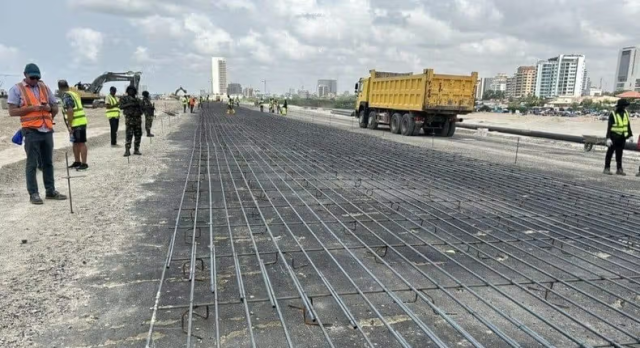The Federal Government has insisted that it will continue construction of the 700km Lagos-Calabar Coastal Highway despite ongoing court cases filed by aggrieved persons against the project.
The Minister of Works, David Umahi, stated this at a press briefing on Thursday in Abuja while addressing serious concerns about the project’s procurement process that led to court proceedings by landowners.
He stated that the N15.36tn coastal highway, which will be built on concrete pavement, received all necessary legal and procedural requirements before it commenced construction.
The coastal highway has been a subject of public scrutiny and controversies since the government commenced construction in March 2024.
In May, Umahi revealed that 750 houses along the highway route were slated for demolition.
However, the owners of the affected properties were dissatisfied with the government's compensation, asserting that it did not reflect their investments.
They claimed the compensation was significantly insufficient and urged the government to reconsider the payment.
The project, designed to connect Lagos to Cross River, passes through the coastal states of Ogun, Ondo, Delta, Edo Bayelsa, Rivers and Akwa Ibom, before culminating in Cross River.
It is crucial for enhancing connectivity and boosting economic activities along Nigeria’s coastal region.
The road is expected to cost N4bn per kilometre, with the government awarding contracts for two sections of less than 100km at a total cost of N2.46tn.
Umahi also said the legacy project would be delivered in eight years.
However, this timeline may not be achievable as the minister hinted that the delay would affect the overall project delivery and increase its cost.
During his first anniversary press briefing, Umahi reiterated the Federal Government's commitment to completing the project, stating that all legal and procedural requirements were followed.
He dismissed claims that the project lacked proper authorisation, asserting that compensation was being paid, and the right of way was being followed.
Umahi expressed confusion over the lawsuits, stating that the procurement process was approved by the Federal Executive Council under the Restrictive Procurement Act.
Umahi defended the project's cost, arguing that comparisons to other international projects were not appropriate.
He stated that the cost of the project was N4bn per kilometre, and criticised those questioning the project without a proper understanding.
The minister also confirmed that all environmental and social impact assessments had been completed, and that the project was included in the 2023 supplementary appropriation.
Umahi called for effective collaboration between federal, state, and local governments, as well as the private sector, to ensure the success of these new policies.
He praised President Tinubu's agenda in the road sector, saying, "it has the potential to transform Nigeria's infrastructure, stimulate economic growth, and improve the lives of citizens."
According to the minister, the government will focus on completing four key projects in 2025, which will be inaugurated by the President.
The minister said the total value of all the ongoing projects as of May 2023 was N14.42tn, with an amount certified of N4.7tn, an amount paid of N3.12tn, and an amount owed contractors for certified works of N1.61tn.
The funding gap to complete all the inherited projects is about N13tn as of May 2023 and will be more than N16tn when all projects are reviewed in line with current market realities.
On the achievements of his ministry in the last year, Umahi said about 90 per cent of the works have been executed to completion, with the sum of N300bn provided in the 2023 Supplementary Budget of the Federal Ministry of Works for some ongoing and new emergency projects.




















